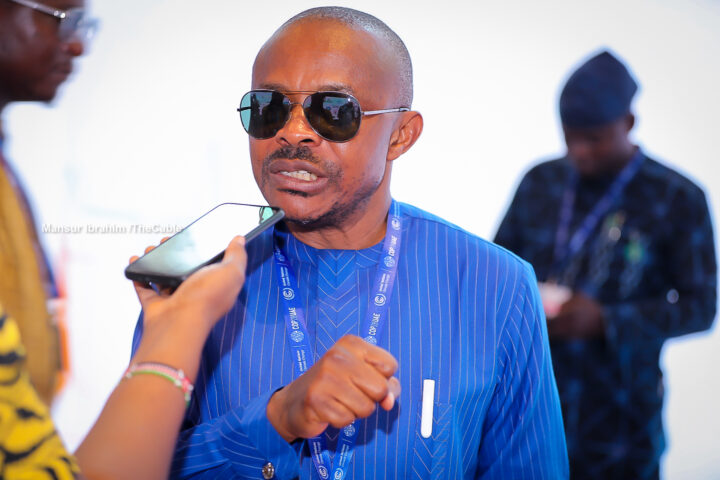The federal government says it has paid N205 billion from the N1.3 trillion debt owed to generation companies (GenCos) to boost liquidity in the power sector.
Adebayo Adelabu, minister of power, spoke during an oversight visit by the house of representatives committee on power.
On February 15, Adelabu, arguing for the discontinuation of electricity subsidy, said Nigeria’s debt to power generation and gas companies was N3 trillion.
The minister, on May 16, announced that President Bola Tinubu had approved the gradual payment of the debt owed to the companies.
Advertisement
During the visit, Adelabu said the federal government is gradually repaying the liability.
“In terms of markets and liquidity, government is also owing these companies, but they have started paying them little by little,” he said.
“Just about three weeks ago, out of the about N1.3 trillion we are owing the generation companies (GenCos), we were able to pay them N205 billion.
Advertisement
“But I will plead with the members of the house committee to help us mount pressure on the executive to continue to pay these people.”
Adelabu said given the current economic hardship, including petrol scarcity, Nigerians should not be subjected to another national blackout, which would further diminish their quality of life.
He said Nigeria must renew its power sector infrastructure and revamp the existing tariff policy, stressing that all segments of the power sector need comprehensive improvements.
“A lot of the towers are falling. The substations are dilapidated with very old transformers, some of them were installed in the 60s. We have not been able to replace them,” he said.
Advertisement
“The same thing with distribution infrastructure. The substations at the distribution level are also not working properly,” he said.
Adelabu described the metering gap as significant, noting that out of over 12 million electricity customers nationwide, only about five million have been metered — leaving a gap of over seven million meters.
He said the ministry’s mandate is to install two million meters annually for the next five years.
The minister said the power sector, which had been considered stagnant for the past 15 years, is now making a strong comeback.
Advertisement
‘IMPROVEMENT IN ELECTRICITY SUPPLY NOT ACCIDENTAL’
On the Siemens project, Adelabu said the pilot phase of the scheme is nearing completion, stressing that various equipment from the project are already being installed across the country.
Advertisement
He said the noticeable improvement in electricity supply across parts of the country is a result of recent efforts by the federal government.
“We went to Germany together and we had a meeting with the German chancellor that we needed to accelerate implementation of the presidential power initiative, which you all know as Siemens project,” the minister said.
Advertisement
“The following month, we had a meeting in Dubai and we signed an acceleration agreement to ensure that we continued with this project and I can tell you, within one year, we have almost concluded the pilot phase of this project.
“The pilot phase included importation, commissioning and installation of 10 power transformers across Nigeria, 10 power mobile substations across Nigeria. So, the improvement you see today is not accidental.
Advertisement
“Hydroelectric power in Nigeria today is just a bit over 20 percent of our total power generated. The remaining almost 80 percent is from gas. So, it is not rain, but by the intentional activities of the federal government through the ministry of power. That is why we are seeing all those improvements.”
In his remarks, Victor Nwokolo, chairman of house of representatives committee on power, urged the minister to ensure that Nigeria does not fall below the 5,000 megawatts it recently achieved.
Nwokolo said without a stable electricity supply, many companies could shut down, leading to job losses and increased insecurity.
The lawmaker suggested that stricter laws should be enacted to combat the growing menace of power asset vandalism.
He said the lawmakers opposed the recent tariff increase for selected customers because it did not follow due process.
“If you look at the electricity act, it said that increment in tariff must be phased over a period of time,” Nwokolo said.
“Above all, it must be gazetted in different languages. Meaning that there must be adverts, there must be consultations, there must be town hall meetings here and there.”
Nwokolo said the federal lawmakers are exploring strategies to put an end to the destruction of power assets across the country.
Add a comment








